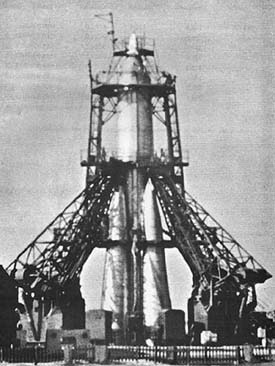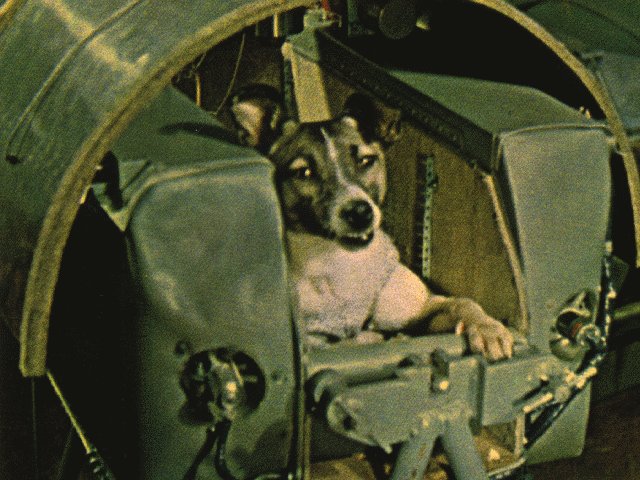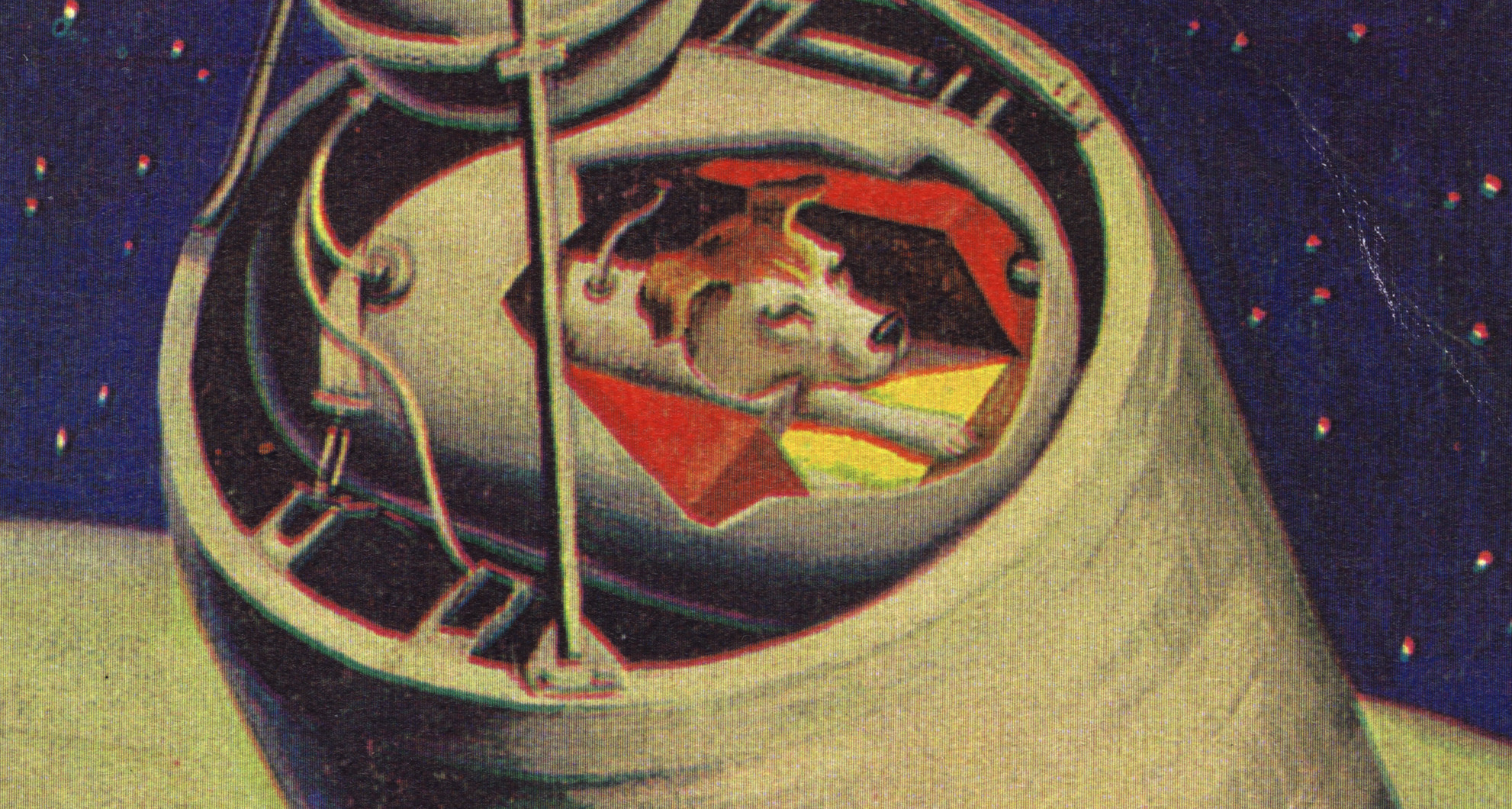Talk about unintended consequences: The success of the Soviet satellite Sputnik in 1957 helped birth the Internet. America’s chagrin over being bested by our Cold War combatants led to the formation of DARPA, and some of that department’s money was used to seed Arpanet. Just three decades later, everyone had convenient access to cat photos and pornography.
The intended consequence of the U.S. spending spree on technology in the late ’50s and ’60s was, of course, for America to surpass the Soviets in space exploration, something that didn’t seem a good bet at the time. The Economist dug into its archives for its reportage about the success of Sputnik 2 and the death of its canine cosmonaut, Laika. The article incorrectly asserted it was almost a sure thing that Russia would reach the moon first. The opening:
AMID the awed silence in which the world has followed the progress of the second Soviet satellite it has been possible to hear the pounding heartbeats not only of the small dog inside but also of the Western statesmen and scientists left far down below. This is not merely because Sputnik II is six times as big as its pipsqueak predecessor (and fifty times bigger than the first still-to-be-launched American satellite) and therefore so many times more impressive. If the first artificial moon had not been followed into space by a fellow-traveller, it might just conceivably have been a lucky experiment that came off. Now that there are two of them, this is no longer thinkable.
If the Russians can self-confidently throw half a ton of equipment and a living creature into their proper orbit in the sky so soon after the first satellite was despatched, they must hold an even longer lead over the Americans than was first thought. Indeed, there have been hints of new rocket designs and new kinds of missile fuel which suggest that the Americans are not only lagging behind but in certain respects may not yet even be on the same road. If it turns out that the Russians can add to all this the further achievement of ejecting the dog from the satellite and bringing it to earth at a time and (even very roughly) a place of their own choosing, the military implications will be horrendous. In addition to the probability that they will have “ordinary” intercontinental missiles ready for use very soon, some years ahead of the West, they would then be able also to girdle the earth with a fleet of incredibly fast and long-lasting bomb-carriers which, unlike the missile-launching sites, would be quite free from the threat of counter-attacks.
This vista of a period of majestic Soviet superiority is not confined to the earth and its suburban space. Man is quite probably going to land on the moon before many years are past, to set up observation posts and to establish a jumping-off ground for further ventures among the planets. As The Economist goes to press, there is speculation that the 40th anniversary of the revolution may be further commemorated by the sight of a Russian missile knocking chips off the moon’s face. In any case, at the present rate of progress it is almost certain to be a Russian who first puts foot to ground there—and he looks like doing it a good many years before anyone else. It is this thought that provides the proper context for the protests of animal-lovers against the use of a dog in Sputnik II.•
_________________________
Public Service Broadcasting performing “Sputnik” in Ottawa.
Tags: Laika



